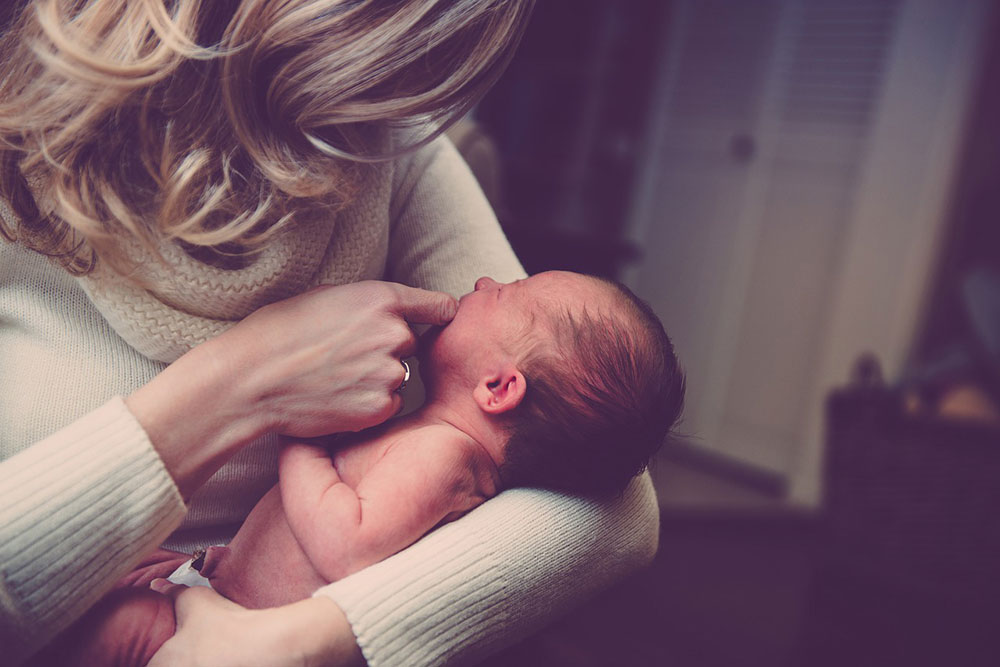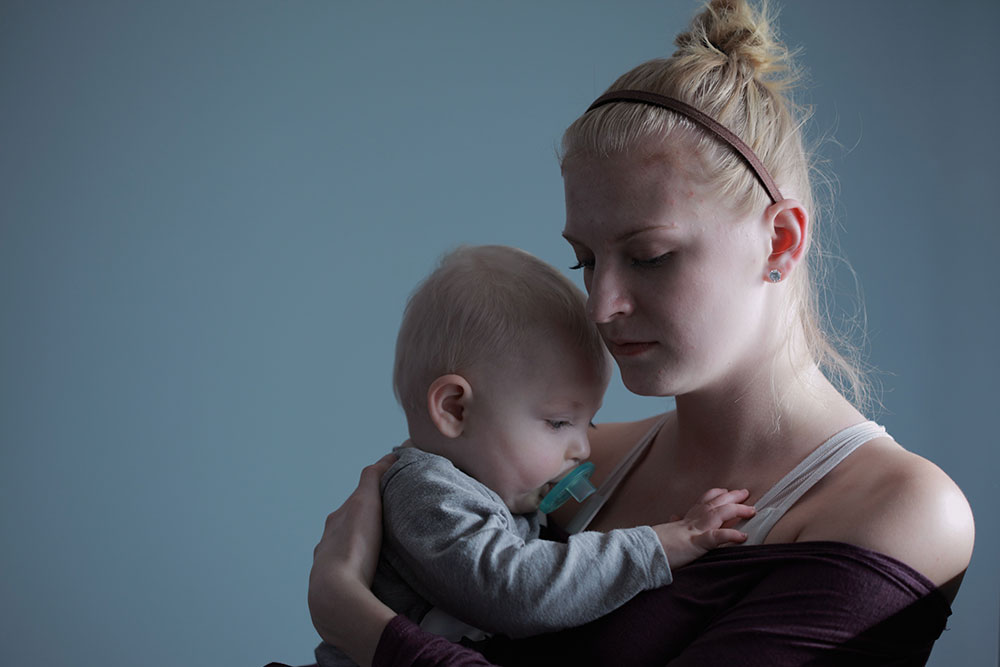How Long Does Postpartum Depression Last?
Published on March 30th, 2017
Updated on January 2nd, 2024

Postpartum depression is a form of depression in which the mother of a baby falls into a depressed state. This state of depression usually occurs shortly after giving birth. A mother suffering from postpartum depression is not uncommon, and does not last forever. A mother may experience postpartum depression in varying intensities, depending on their circumstances.
Postpartum depression can cause several alarming symptoms and behaviors. These symptoms can be very intense to experience, and without proper support can be hazardous to the health of the mother and the baby. The depressed state of postpartum depression typically results in some of the following behaviors:
- Avoiding the baby
- Feeling anger or resentment toward the baby
- Crying spells
- Feeling overwhelmed with the changes that a baby brings
- Mood swings and depressed mood
- Irritability
- Trouble focusing
- Thoughts and fears about harming yourself or your baby
A mother who is suffering from postpartum depression may also struggle with self-esteem and self-worth as a mother. She may doubt her ability to take care of her child, which can result in a lot of negative self-talk.
Sponsored by

Choose a therapist to work with and start healing with 20% off from BetterHelp.
Click HereThese symptoms are usually the result of a hormone imbalance. They tend to kick in between 1 day and 2 weeks after giving birth. A mother can also be at risk if they are in a compromised financial situation or lack a support network.
Experiencing postpartum depression is scary. However, it is important to keep in mind that the symptoms are not a reflection of the mother’s ability to be a kind, nurturing and successful mother. It is also important to remember that the symptoms do not last forever.
Each case of postpartum depression is different. It will cause different symptoms and last different lengths of time. Some women may only experience it for a week or two, while others may struggle for years. The length of the condition depends on several factors, like her support system and mental health status.
Here is a breakdown of the amount of time a person would expect to have postpartum depression, depending on the severity of their symptoms:
The baby blues is a term used for a more mild form of postpartum depression. When a person experiences the baby blues they may experience similar symptoms, like:
- Mood swings
- Irritability
- Anxiety
- Feeling dependent on others
- Feeling fearful about the wellbeing of their baby
- Doubting their competency as a mother
Baby blues typically only last between one and three weeks after the onset of symptoms. Symptoms can occur anywhere between one day and two weeks after the birth of the mother’s baby.
The difference between the baby blues and postpartum depression is that with postpartum depression the symptoms will last longer and be more severe. A case of postpartum depression can arise as early as one day or as late as six months after giving birth.
Most cases of postpartum depression occur within the first three months after birth. Symptoms of postpartum depression will feel all encompassing. They will have a prolonged effect on the mother and how she relates to her child.
A case of postpartum depression can last anywhere between six months and one year after giving birth. A mother may also have residual depression after the first year, which may require ongoing treatment.
Most cases of postpartum depression will see a gradual decline as the mother’s hormones adjust and level out. Length of time of a case of postpartum depression also depends how well and quickly the mother gets accustomed to the new baby.
Postpartum Depression and Mental Health
The length of time a mother suffers from postpartum depression depends on her overall mental health. A mother is at a higher risk for developing symptoms if she has a history of anxiety or other mood disorders.
A mother has a higher risk to experience postpartum depression if she is predisposed to depression. She is also at risk if she suffers from other mood disorders, like:
- Anxiety
- Bipolar disorder
- Major depressive disorder
- Post-traumatic stress disorder
- Borderline personality disorder
- Schizophrenia
- Dependent personality disorder

Treatment for Postpartum Depression
Postpartum depression is an oppressive condition, but it is not one that has to last a long dime. The length of time the symptoms will last depends heavily on whether or not the mother seeks treatment.
In most cases, treatment and counseling is a critical part of a mother’s recovery. Postpartum depression is treatable, and symptoms can be relieved within months after beginning treatment with early intervention.
If postpartum is not treated properly with a mental health professional, it can cause lasting effects on the mother. It can affect the mother’s overall mental health and wellness, and can even develop into other conditions. Untreated postpartum depression can also affect how the mother bonds with their child past infancy and throughout the child’s life.
Therapy for postpartum depression is the best option for recovery. In therapy, a mother can learn about what it means to have postpartum depression. This helps her understand what is happening in their body and mind, which can help her feel like she is not to blame for her challenges. Therapy can teach healthy coping skills that prevent her from blaming herself or the baby for her depressed mood. She will also learn self-care and parenting skills that can be instrumental in her role as a mother.
Therapy for postpartum depression can also include family members. Whether it is your partner, parents or primary support group, a therapist can help you build and strengthen your support system by setting clear expectations for everyone’s role. Having this support and knowing how to use it can help a mother build her confidence in her role as a mother.
In more severe cases, a therapist may recommend psychiatric services. This means the mother may need medication to help her cope with her symptoms while in recovery. Psychiatric medication can be an important part of severe cases of postpartum depression. It is to be used in conjunction with regular therapy in order for it to be the most effective.
If you feel you or a loved one is experiencing symptoms of postpartum depression it is important to seek professional help.
Sponsored by

Find an affordable therapist online with 20% off from BetterHelp.
Click Here






Leave A Reply